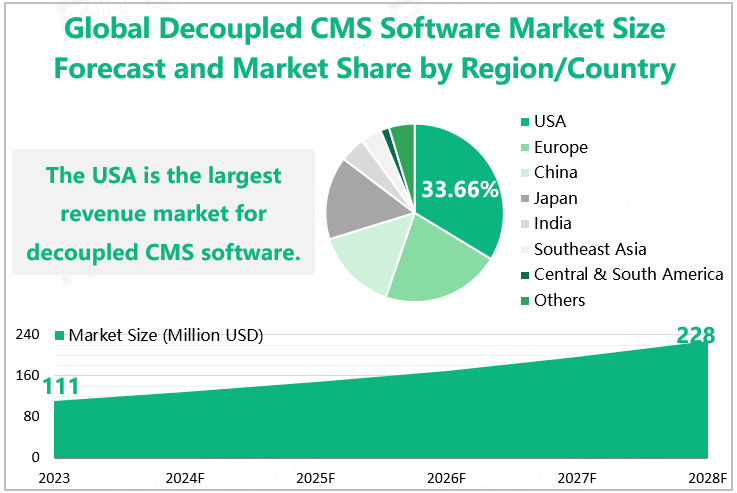Decoupled CMS (Content Management System) software is a new type of CMS architecture pattern that separates content management and presentation in a content management system and achieves decoupling through APIs (Application Programming Interface) or microservices. This decoupling design approach makes CMS more flexible and scalable, and can better meet various user needs.
Segmented Market Analysis
According to the different types of servers required, decoupled CMS software can be divided into two categories: cloud-based CMS software and web-based CMS software. Cloud-based CMS software is based on the cloud computing platform. Users can access and use it through the Internet. It usually provides higher scalability and flexibility, such as AWS Amplify, Google Cloud CMS, etc; Web-based CMS software refers to software applications that run on the Internet or a web browser. Users do not need to install additional software but can access and use it through a web browser.
Research has shown that among the two types of decoupled CMS software, cloud-based CMS software dominates the market. According to our research data, the global cloud-based CMS software segment market size was $95.30 million in 2023, with a market share of 86.10%.
From the perspective of downstream applications, decoupled CMS software has a wide range of applications in various types of enterprises, but it is most commonly used in large enterprises, with a market share of 55.67%.
Global Decoupled CMS Software Market Size and Share by Type and Application in 2023
|
|
Market Size (Million USD) |
Market Size |
|
Segmented by Type |
||
|
Cloud-based |
95.30 |
86.10% |
|
Web-based |
15.39 |
13.90% |
|
Segmented by Application |
||
|
Large Enterprises |
61.62 |
55.67% |
|
SMEs |
49.07 |
44.33% |

We provide more professional and intelligent market reports to complement your business decisions.